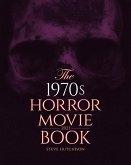Herein, Professor Harper and her droogs saunter out of the Karova milkbar, power up the Durango-95 and engage in a bit of the old ultra-analysis. The Portsmouth posse take a penetrating peek at the pictures in the period of punks, power-cuts and politicos, flinching neither at Robin Askwith's Y-fronts nor Malcolm McDowell's swastika jock-strap. Viddy well, O my brothers. Steve Chibnall, Professor of British Cinema, De Montfort University "British Film Culture in the 1970s is certain to become the definitive study of British cinema's least understood decade. Sue Harper and Justin Smith must be commended for marshalling a wealth of material into a volume that represents not only scholarship of the highest order but is also a compelling narrative in its own right. What emerges is a fascinating account of the complex relationships between economic crises and aesthetic innovation as British film-makers responded to far-reaching changes in the industry and in the wider society and culture. This is not just one of the best recent books about British cinema - it is one of the best works of film history I have read." James Chapman, Professor of Film Studies, University of Leicester This volume draws a map of British film culture in the 1970s, providing a long-awaited and authoritative history of the period. The culmination of an AHRC-funded project at the University of Portsmouth, this study locates British cinema socially and explores its cross-cultural relationship with other media, including popular music and television. The analysis covers mainstream and experimental film cultures, identifying their production contexts, economic bases and taste-communities. The book's structure suggests ways of thinking about cultural history afresh. The essays in Part I have been contributed by members of the project, and illustrate the diversity of the moving image culture of the period. In Part II, Sue Harper and Justin Smith investigate how gender relations and social space were addressed in film. A shared visual manner and performance style is shown to characterise this fragmented cinema, and irony and anxiety suffuse the whole film culture. This comprehensive examination charts the shifting boundaries of permission in 1970s film culture, and its re-definition of notions of visual pleasure. For more information about the AHRC-funded project 1970s British Cinema, Film and Video: Mainstream and Counter-Culture (2006-2009) please visit the project website at www.1970sproject.co.uk. Sue Harper is Emeritus Professor of Film History at the University of Portsmouth. She is a cultural historian who has written widely on British cinema, and made numerous appearances on radio and television. Justin Smith is a Principal Lecturer in Film Studies at the University of Portsmouth. His research interests embrace production, reception and exhibition practices, film fandom, and issues of cultural identity and popular memory.
Bitte wählen Sie Ihr Anliegen aus.
Rechnungen
Retourenschein anfordern
Bestellstatus
Storno


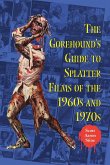
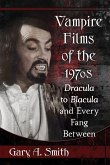
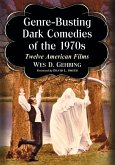
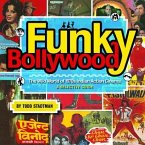
![The Daring Decade [Volume Two, 1975-1979]: The Exciting, Influential, and Bodaciously Fun American Movies of the 1970s The Daring Decade [Volume Two, 1975-1979]: The Exciting, Influential, and Bodaciously Fun American Movies of the 1970s](https://bilder.buecher.de/produkte/60/60888/60888601m.jpg)
